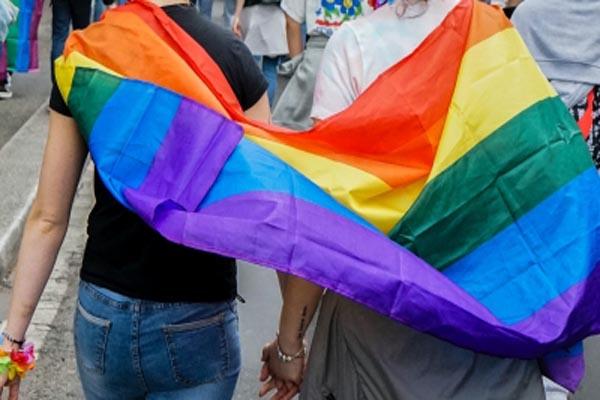[ad_1]
Guwahati/ Agartala, Apr 23, 2023, IANS
 Agartala/ Guwahati, April 23 (IANS): Amidst the ongoing hearing on same-sex marriage in the Supreme Court, lawyers, intellectuals, social scientists and others in the northeastern region are divided on the issue.
Agartala/ Guwahati, April 23 (IANS): Amidst the ongoing hearing on same-sex marriage in the Supreme Court, lawyers, intellectuals, social scientists and others in the northeastern region are divided on the issue.
Legislators from local political parties in the northeastern states observed that Parliament and the Assemblies are the appropriate forum to decide on the creation of a new social relationship or same-sex marriage related issues.
The BJP, Congress and CPI-M MLAs and MPs refused to make any comments saying that their central leaders would speak on this “court related matter”.
Intellectual and author Sekhar Datta said individuals and the concerned community and society must decide on this sensitive same-sex marriage issue.
“Same-sex marriage issue should not be institutionalised. The matter must be left to the person concerned,” Datta told IANS.
Of the northeast region’s 45.58 million population, 27-28 per cent are tribals, who follow their traditional and customary laws.
Tribal leader and author Salil Debbarma said that unlike the non-tribals, in some tribal communities marriages have been solemnised among close relatives.
“However, same-sex marriage among the tribal communities was never a matter so far. This might be a matter in most urban areas and metropolises,” the octogenarian tribal leader told IANS.
Legal experts and lawyers also have differing opinions on the same-sex marriage issue.
Lawyer and writer Purushuttam Roy Barman said that this should be dealt with in a manner keeping in mind that personal or individual liberty should not hampered.
“People and the community’s mindset are changing. Men and women are now attracted to a modern outlook and most people see societal aspects on a scientific basis. If any couple are in favour of same-sex marriage, others should not raise any objections,” he told IANS.
Roy Barman, who is also the Secretary of the Tripura Human Rights Organisation, said that the Special Marriage Act of 1954 was introduced in a special situation and a few years’ back the rights of the third gender were established by law.
He said that when widow remarriage was initiated there was a big hue and cry in the society and now it is almost accepted by the society along with the marriage of divorcees.
“While marriage is an institution, some conservative people observe that it is decided by the gods. However, everything is gradually changing,” Roy Barman said.
Activist and writer Nandita Datta supporting same-sex marriage said that earlier very few people supported it, but now the percentage of people favouring same-sex marriage has increased substantially.
“Same-sex marriage would control the massive population growth in India. Religious leaders are against same-sex marriage because their undue dominance on men and women would be curtailed or hampered. They invoke the fear of gods in this regard,” said Datta.
The Supreme Court is now hearing a batch of 15 petitions challenging certain provisions of the Hindu Marriage Act, Foreign Marriage Act and the Special Marriage Act and other marriage laws, as unconstitutional on the ground that they deny same sex couples the right to marry or alternatively to read these provisions broadly so as to include same sex marriage.
The Centre has raised preliminary objections to the hearing and said Parliament is the only constitutionally permissible forum to decide on the creation of a new social relationship.
[ad_2]